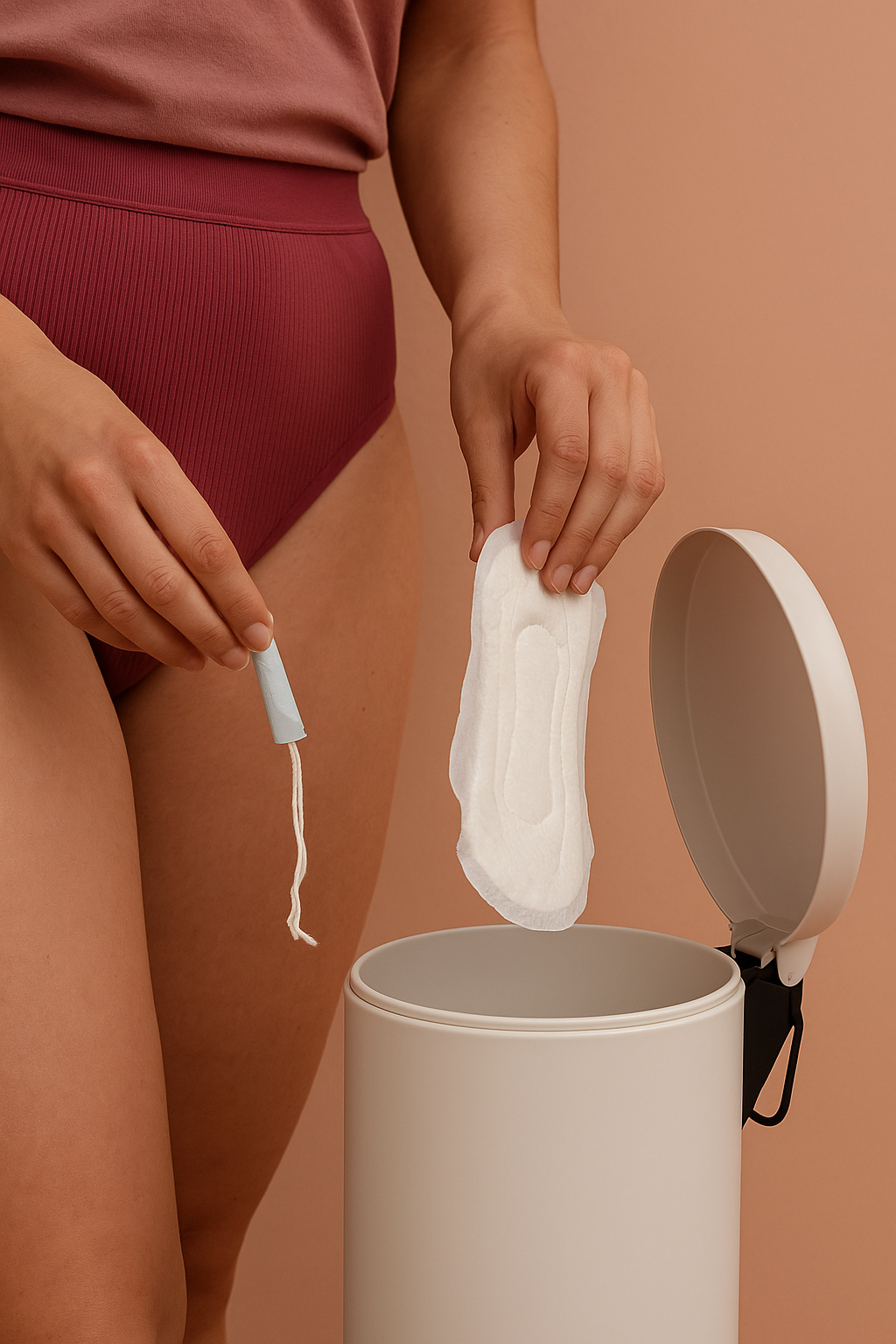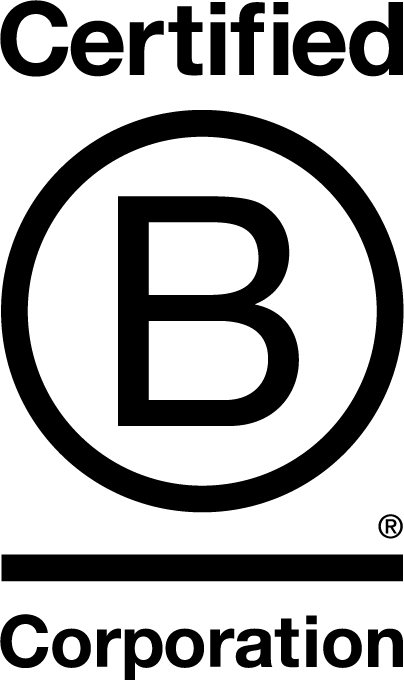At Riley, sustainability and transparency are at the heart of everything we do. We believe people shouldn’t have to choose between caring for their body and caring for the planet. That’s why we’ve reimagined period care from the ground up, offering products that are not only effective and comfortable, but also sustainably made using certified organic materials and biodegradable packaging.
Unfortunately, most conventional period products tell a different story. Traditional pads can contain up to 90% plastic, equivalent to about four plastic bags per pad. Mainstream tampon applicators are typically made from petroleum-based plastic, which can take over 500 years to decompose. And it doesn’t stop there. Many pads and tampons are made from non-organic cotton treated with pesticides, or from rayon, a synthetic fiber derived through chemically intensive processes. These materials are often bleached using chlorine, which can create harmful byproducts like dioxins.
At Riley, we do things differently. Our pads, pantyliners, and tampons are made from 100% certified organic cotton, free from chlorine bleach, pesticides, fragrance, or unnecessary chemicals. Many components are biodegradable or compostable, which significantly reduces their environmental footprint. But to truly ensure sustainability, it's just as important to dispose of them correctly.
We know that choosing eco-friendly period care goes beyond what’s in the box; it also includes how you dispose of it. This guide breaks down how to dispose of each of our products in the most responsible way possible.
Before we get into the details, one important note: while most components of our products are compostable when unused, used period products that contain blood may be treated as hazardous or biohazardous waste depending on local regulations. We always recommend checking with your local waste management provider or municipality to understand how best to dispose of used period care items in your area.
Pads
Materials:
- Top sheet: 100% GOTS certified organic cotton (non-woven)
- Absorbent core: 100% GOTS certified organic cotton
- Back sheet: Biodegradable film
- Adhesive: Skin-safe, no harsh glues
- Release paper: Recyclable paper
-
Wrapper: Plant-based & biodegradable
Disposal Guide:
- Unused Pads: The organic cotton, biofilm wrapper and backsheet are compostable in home and industrial composting conditions.
- Used Pads: May be classified as hazardous waste due to the presence of blood. Check local waste regulations; if uncertain, dispose of in general waste.
-
Wrappers & Release Paper: Recyclable or compostable depending on your local facility’s capabilities.
Pantyliners
Materials:
- Top sheet: 100% GOTS certified organic cotton (non-woven)
- Absorbent core: 100% GOTS certified organic cotton
- Back sheet: Biodegradable film
- Adhesive & Release paper: Skin-safe and recyclable
-
Wrapper: Plant-based & biodegradable
Disposal Guide:
- Unused Pantyliners: The organic cotton, biofilm wrapper and backsheet are compostable industrial composting conditions.
- Used Pantyliners: Must typically be disposed of in landfill unless your local authority permits composting of blood-contaminated items.
- Release Paper: Recyclable, and may be compostable depending on your local industrial composting facilities capabilities.
-
Wrappers: Compostable, but always confirm with your local waste service.
Applicator Tampons
Materials:
- Core & string: 100% certified organic cotton
- Applicator: Plant-based and derived from sugarcane (BPA-free)
-
Wrapper: Plant-based and made from woodpulp.
Disposal Guide:
- Unused Tampons: Compostable due to organic cotton and biodegradable wrapper.
-
Used Tampons: Blood-containing items usually must be landfilled; consult local waste guidelines.
Applicator: Recyclable. -
Wrapper: Compostable, but always confirm with your local waste service.
Naked Tampons
Materials:
- Core & string: 100% GOTS certified organic cotton
- Security veil (outer wrap): 100% GOTS certified organic cotton
-
Wrapper: Paper
Disposal Guide:
- Unused Tampons: Compostable, including the paper wrapper.
- Used Tampons: Dispose of with general waste unless your area permits otherwise.
-
Wrapper: Recyclable or compostable depending on local waste services.
A Note on Local Laws & Best Practices
Disposal rules vary significantly from region to region. While we’ve designed Riley products to be compostable or biodegradable, used products (especially those containing blood) are sometimes categorised as biohazardous waste. For the safest and most responsible disposal, we recommend:
- Reviewing your local council or municipality’s waste guidelines
- Searching for terms like sanitary waste, biohazard, or compostable packaging
-
When in doubt, disposing of used products in landfill to prevent contamination of recycling or compost streams
Let’s Keep It Clean, Together
We’ve worked hard to ensure that our products are as gentle on the earth as they are on your body. But it takes all of us to make the biggest difference. Whether you’re composting your wrappers, advocating for better waste infrastructure in your city, or simply choosing more eco-conscious products - you’re part of the change.



